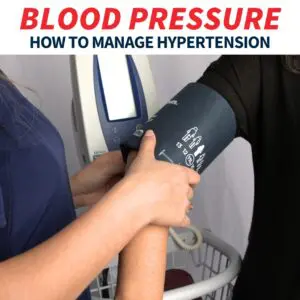COVID Vaccine Status: What You Need to Know
 As the world turns towards summer, the long winter of the COVID-19 pandemic seems to be easing in Illinois and Indiana. The vaccine rollout has begun to control the spread of the virus, and millions of Americans are receiving their vaccine, bringing hospitalization rates and death rates for COVID lower than they’ve been in over a year.
As the world turns towards summer, the long winter of the COVID-19 pandemic seems to be easing in Illinois and Indiana. The vaccine rollout has begun to control the spread of the virus, and millions of Americans are receiving their vaccine, bringing hospitalization rates and death rates for COVID lower than they’ve been in over a year.
Shifting priorities of the vaccine rollout and logistical challenges, however, have left many Americans with questions about the vaccines. Our goal is to help answer lingering questions about the vaccine and present the facts.
Are the vaccines safe?
There are three vaccines currently available for use in the US. All three vaccines met the Food and Drug Administration’s rigorous tests for emergency use authorization over the course of clinical trials that compared data from tens of thousands of patients. According to the CDC, these vaccines have received the highest levels of safety monitoring they have ever applied to a vaccine.
What are the side effects?
Some side effects are known, though serious ones are not common. Most people who get the vaccine will experience no side effects or minor side effects that can include fatigue, muscle soreness, chills, fever, or nausea. These are normal signs that your body is building protection based on the immunization and should subside in a few days at most.
The CDC recently paused use of the Johnson and Johnson vaccine after a possible correlation was found between the vaccine and thrombosis with thrombocytopenia syndrome, a blood clotting condition, in rare cases. The agency paused use of the vaccine to explore the connection out of an abundance of caution, but has since resumed it. The agency found the vaccination within safe limits, but recommends that women under 50 receive a different vaccine, such as Pfizer or Moderna. While the CDC recommends high risk groups receive a different vaccine, the condition was projected to only affect .0007% of women in the high risk age group who would take that vaccine.
Who can get a vaccine?
In both Illinois and Indiana, any person 12 and over can make a vaccine appointment at any time. Vaccinations are no cost, and many vaccination sites are currently accepting walk-ins. Currently, only the Pfizer vaccine is available to this younger demographic.
When will we achieve herd immunity?
The world isn’t out of the woods yet with regard to COVID-19. With enough distancing and vaccinations, eventually the virus will cease to spread at the level warranting the title of a “pandemic” and will likely become an “endemic” virus as the world’s immunities adapt to this new coronavirus. Usually, experts assume that 70-80% of the population must be protected to reach this level.
Currently, Illinois is approaching 50% vaccinated individuals, while Indiana is closer to 1/3. Every vaccinated person gives vulnerable populations who are unable to receive the vaccine more chance to avoid the dangerous virus. More vaccinated individuals gets us closer to beating this pandemic together.
At Midwest Express Clinic, we know this past year has been hard. We’re eagerly looking forward to a world outside of the shadow of the pandemic, but we’re still here to help just like always. While we are not issuing vaccinations at our clinics at this time, the danger of COVID infection is still very real. If you feel sick or think you may have been exposed to COVID-19, proper diagnosis through testing and preventing the spread of illness is as important of an effort to protect people as receiving the vaccine is.
If you think you may be infected with COVID, visit one of our clinics today to receive a convenient COVID test. Identifying the virus is still just as important, and controlling the spread means seeking out responsible healthcare to ensure those around you are protected. We can all see the light at the end of the COVID-19 tunnel, and as always Midwest Express Clinic is here to make sure we walk the last distance safely together.




